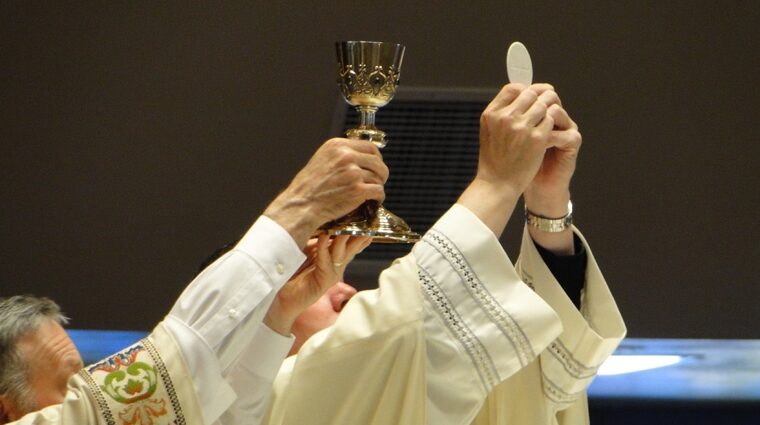I want to spend just a moment this morning focusing on the book of Hebrews. It can be a challenging book to understand because it’s a treatise, a document attempting to mount the Christian philosophy’s “legal defense.” The author of Hebrews makes his closing argument in these verses, giving us a clear understanding of this book’s purpose. He begins by comparing sets of two. The writer, in a way, juxtaposes the Old Covenant and the New.
He compares the mountains on which it happens. Sinai and Zion. Examining the people themselves. Israel and the Church. Then there is the response of the people to God’s presence. Fear versus worship. Even the location of the events is different. One earthly while the other is in Heaven. Maybe the most shocking to a first-century audience, he compares the mediators of the two covenants. Moses and Jesus.
To a first-century audience, this would have been jarring. Moses was the prophet of prophets. Under his guidance, God led his people out of Egypt and towards the promised land. When God appeared to them on the mountain, it was with lightning and smoke, clouds that darkened the skies. Loud trumpets and fire. The people were so scared they begged not to hear from God directly, and Moses was appointed to be the one who went up to meet him. Even Moses trembled with fear at the aspect of what was happening.
Then we get this image of a new way to approach God. Not a new God, for God never changes. Just a new way of understanding Him, a glimpse into His mercy and grace. What we have here in this short snippet of Hebrews is a glimpse into the heavenly liturgy, the way the Angels and Saints worship God outside of time in eternity itself. It’s a call to join in that worship, an invitation for us to gather together at the same altar. The altar that stands before us in the sanctuary.
The comes to the comparison that makes all the difference: the blood of Abel and the blood of Christ. The blood of Abel spilled cried out of vengeance! But the sprinkled blood of Jesus cries out for the forgiveness of sins and salvation. That’s what our faith is all about. Here in the Mass, Heaven kisses the earth, and God has allowed us to join in worship the way He intended. The Catechism says it this way:
“The Holy Spirit dispenses the mystery of salvation; and because through her liturgical actions the pilgrim Church already participates, as by a foretaste, in the heavenly liturgy.” (CCC 1111)
If we internalize this, if we begin to live our lives understanding what we believe about the Mass, everything we believe begins to make sense. It also will change how we behave in the presence of the Eucharist, near the tabernacle and the altar. We don’t have to wait for after death to experience a taste of Heaven; we get a glimpse of it right now, right here on earth in the liturgies of the Church. Let’s not let that opportunity go to waste.
Tomorrow is 1st Friday and we have Adoration at our parish, Saint Catherine of Genoa, in Genoa. What better opportunity to come and sit allowing Jesus to work on your heart, than to be in the presence of the Kingdom of God, Jesus Christ, in silent Adoration?
Thursday of the Fourth Week in Ordinary Time: February 4th, 2021

